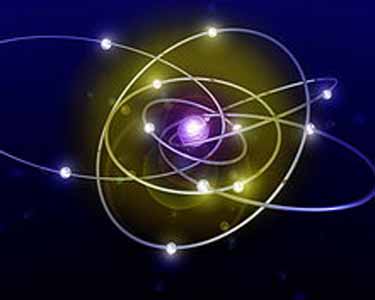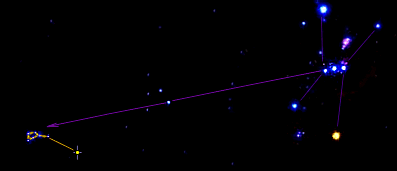
Quantum mechanical phenomena such as quantum teleportation, the EPR paradox, or quantum entanglement might appear to create a mechanism that allows for faster-than-light (FTL) communication or time travel, and in fact some interpretations of quantum mechanics such as the Bohm interpretation presumes that some information is being exchanged between particles instantaneously in order to maintain correlations between particles. This effect was referred to as "spooky action at a distance" by Einstein.
Nevertheless, the rules of quantum mechanics curiously appear to prevent an outsider from using these methods to actually transmit useful information, and therefore do not appear to allow for time travel or FTL communication. This misunderstanding seems to be widespread in popular press coverage of quantum teleportation experiments. The assumption that time travel or superluminal communications is impossible allows one to derive interesting results such as the no cloning theorem, and how the rules of quantum mechanics work to preserve causality is an active area of research.
The possibility of paradoxes
The Novikov self-consistency principle and recent calculations by Kip S. Thorne indicate that simple masses passing through time travel wormholes could never engender paradoxes - there are no initial conditions that lead to paradox once time travel is introduced. If his results can be generalized they would suggest, curiously, that none of the supposed paradoxes formulated in time travel stories can actually be formulated at a precise physical level: that is, that any situation you can set up in a time travel story turns out to permit many consistent solutions. The circumstances might, however, turn out to be almost unbelievably strange.
Parallel universes might provide a way out of paradoxes. Everett's many-worlds interpretation of quantum mechanics suggests that all possible quantum events can occur in mutually exclusive histories. These alternate, or parallel histories would form a branching tree symbolizing all possible outcomes of any interaction.
Since all possibilities exist, any paradoxes can be explained by having the paradoxical events happening in a different universe. This concept is most often used in science-fiction. However, in actuality, physicists believe that such interaction or interference between these histories is not possible.
Time travel and the anthropic principle
It has been suggested by physicists such as Max Tegmark that the absence of time travel and the existence of causality may be due to the anthropic principle. The argument is that a universe which allows for time travel and closed time-like loops is one in which intelligence could not evolve because it would be impossible for a being to sort events into a past and future or to make predictions or comprehend the world around them.
Note that this imposes no restriction on supernatural agents (e.g. God) which are not confined by the bounds of spacetime. See the next section for details.
Time Travel and Religion
Prophecy and theology
It is interesting to note that any religion which postulates the existence of fulfilled prophecy requires, at the very least, an agent which can move information from the future into the past.
In Christian theology, for example, God is assumed to exist unbound by space or time. Doctrinally, God is held to be omniscient and omnipresent. Statements in the Bible such as Jesus's claim "before Abraham was born, I am" (John 8:58) and Peter's claim "[Jesus] was chosen before the creation of the world" (1 Peter 1:20) (assuming the creation of the world began at t = 0) imply that God does not occupy the same timeline that we do. This is further supported by the assertion "I the LORD do not change" (Malachi 3:6), since change requires movement along, and constrained by, a temporal continuum.
Two popular interpretations of these statements are that God exists outside the space-time continuum; or exists at every point in space-time simultaneously. In either case, God can transfer information from one point in space-time to any other point without restriction.
Transcending time through ancient wisdom.
The Yoga Sutras of Patanjali have been considered by some, such as physicist Fred Alan Wolf in his book, The Yoga of Time Travel to describe an inner process by which we can access knowledge of the past and future in the present. This form of time travel can be acquired by transcending the five Earthly anchors of the ego mind which otherwise leave us locked into the illusory self.


